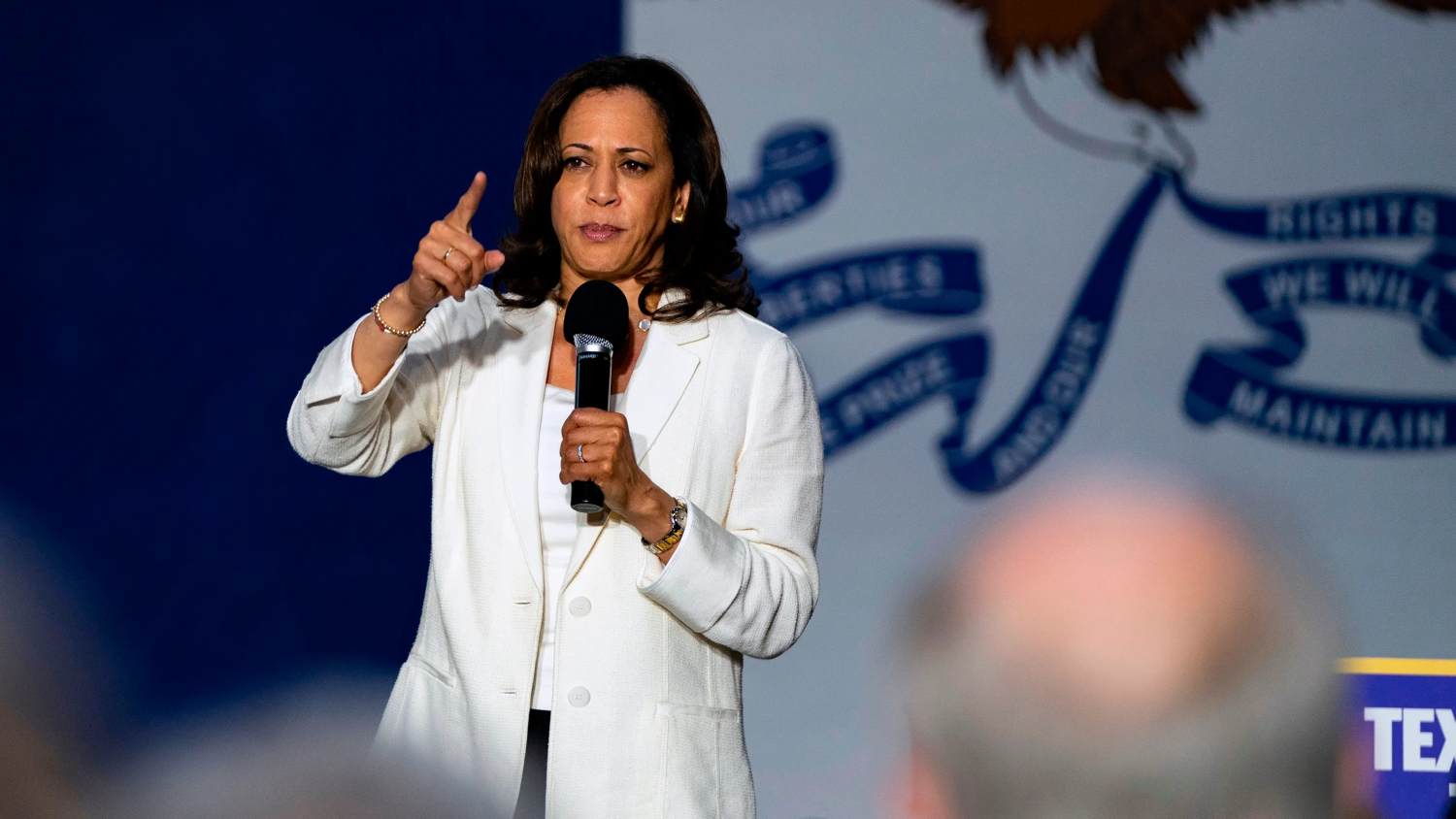The topic of healthcare, namely in the form of Medicare For All, has been a widely debated and contested issue during the first two Democratic debates. The real divide among the field is whether any healthcare plan should effectively “ban” private insurance, such as the plans from Sen. Bernie Sanders and Sen. Elizabeth Warren, or whether the plan should simply exist as a public option which directly competes with private insurance on the market.
Sen. Kamala Harris has been trying to play both sides and jump back and forth in between. Over the weekend, Harris said that she supports Medicare For All as a concept, but does not support Bernie’s version which would eliminate the private insurance market.
The only catch with this about-face for Harris is that she co-sponsored the very legislation which Bernie Sanders is now touting as his healthcare plan in his presidential campaign.
Newsweek reports on the maneuvering Harris is doing to try and walk back prior support for eliminating the private insurance market:
Speaking at a Hamptons fundraiser to corporate executives and one-percenters, Harris explained that she has “not been comfortable” with the healthcare plan written by her 2020 competitor Vermont Senator Bernie Sanders.
“I think almost every member of the United States Senate who’s running for President and many others, have signed on to a variety of plans in the Senate. And I have done the same,” she said at the fundraiser, according to her campaign. “[A]ll of them are good ideas, which is why I support them. And I support Medicare for All. But as you may have noticed, over the course of many months, I’ve not been comfortable with Bernie’s plan, the Medicare for All plan.”
That article goes on to point out that in August of 2017, Harris was the first Senator to sign-on as a co-sponsor of Bernie’s original Medicare For All legislation. Furthermore, back in April, the Harris campaign even touted her support of the plan and listed her co-sponsorship as a credential in her progressive cap.
Bernie noticed the news from the Hamptons and responded on twitter without naming Harris specifically:
I don't go to the Hamptons to raise money from billionaires. If I ever visited there, I would tell them the same thing I have said for the last 30 years: We must pass a Medicare for All system to guarantee affordable health care for all, not just for those who can afford it.
— Bernie Sanders (@BernieSanders) August 19, 2019
What changed between April and August? Clearly the political triangulation of voter sentiment toward the concept of Medicare For All in relation to eliminating private health insurance. In general, according to some polling, Americans are interested in some kind of government insurance plan so long as they still have the option to keep their private insurance if they want to. Under Bernie’s plan, the option to stay with a private insurance plan would disappear entirely. That’s perfectly fine for progressive voters in the Democratic primary who support full-blown government-run healthcare, but Harris is trying to stay away from being seen as too far to the left on this issue.
The Newsweek article also notes that Harris has been lukewarm for the past few months on healthcare, often voicing support for the plan, then walking back her statement or position when she’s questioned:
During the first Democratic debate, she was one of two candidates who raised their hands when asked if they would get rid of private health insurance as president. The next morning on NBC’s Morning Joe, however, she said that she would not abolish private insurance. Harris claimed that it was because she interpreted the question differently.
“The question was, would you give up your private insurance for that option, and I said yes,” she explained.
In January during a CNN Town Hall, Harris also delivered mixed messages around healthcare. “The idea is that everyone gets access to medical care, and you don’t have to go through the process of going through an insurance company, having them give you approval, going through the paperwork, all of the delay that may require. Let’s eliminate all of that. Let’s move on,” she said.
She later claimed that her response was misinterpreted.
Democratic primary voters have likely begun to take notice of Harris’ inability to commit to the Medicare For All mantle in entirety and it’s probably part of the reason for her polling numbers falling back into single-digits after the second Democratic debate:
Harris suffered an average 3 percentage point decline in five post-debate polls when compared with her pre-debate numbers. When the data site FiveThirtyEight on Wednesday weighted those five polls based on their sample size and quality, Harris suffered the greatest hit of any candidate — 2.8 percentage points.
There’s no way to prove why Harris fell, but the former California attorney general did draw critical reviews for her defense of her health care plan in the second debate.
Former vice president Joe Biden is facing some similar challenges with his decision to walk back some of his prior political positions, but none of those moves have hurt him the way that Harris has suffered for appearing to be politically indecisive.
Back in July, Biden also made statements to clarify that he does not support Bernie’s version of Medicare For All since it would eliminate private insurance, a move which Biden says he does not support.
Whether Democratic primary voters agree with Elizabeth Warren or Bernie Sanders entirely, it’s pretty clear where they stand on the healthcare question. As the campaign rolls on, it becomes less and less clear where Kamala Harris truly stands on some of these issues as her public statements and clarifications have muddied up her campaign platform.
Donate Now to Support Election Central
- Help defend independent journalism
- Directly support this website and our efforts
